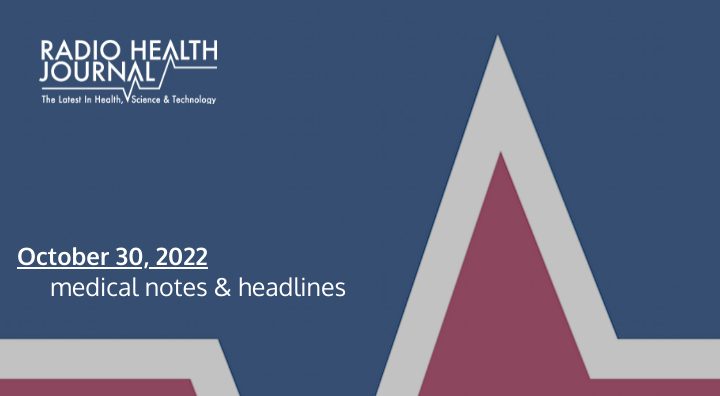Colorectal cancer rates have increased among people under the age of 50 and that’s why the American Cancer Society is now recommending adults undergo screening starting at age 45, rather than 50. The rate of colorectal cancer among people younger than 50 has risen 51 percent since 1994 yet doctors are struggling to pinpoint the reason. Colorectal cancer is the fourth-most-common cancer among adults, and about 50,000 Americans are expected to die of the disease in 2018.
For years, public health experts have been encouraging women to take folic acid supplements to prevent birth defects but a study in the American Journal of Public Health shows many women still don’t take them. The study shows fewer than five percent of low-income urban mothers take daily folic acid supplements before getting pregnant. Previous studies prove that use of these prenatal vitamins can prevent 50 to 70 percent of neural tube defects in newborns. Experts suggest all women of reproductive age take folic acid since many pregnancies are unintended.
The belief that exercise can slow cognitive decline in older people with dementia has gained popularity. Yet new research shows that’s not true. A study in the journal BMJ says moderate to high intensity exercise can improve physical fitness but experts say it does not improve cognitive impairment, daily activities, behavior, or health-related quality of life.
And finally… everyone knows soda isn’t good for you. But it may be even worse than you think. A study in the journal Obesity Reviews shows that “a calorie isn’t just a calorie” but that some are worse than others, and soda may be one of the worst. Even if soda doesn’t make you gain weight, it can markedly increase the risk of other health-related issues.
Medical Notes 18-26: Week of July 1, 2018
Colorectal cancer rates have increased among people under the age of 50 and that’s why the American Cancer Society is now recommending adults undergo screening starting at age 45, rather than 50. The rate of colorectal cancer among people younger than 50 has risen 51 percent since 1994 yet doctors are struggling to pinpoint the reason. Colorectal cancer is the fourth-most-common cancer among adults, and about 50,000 Americans are expected to die of the disease in 2018.
For years, public health experts have been encouraging women to take folic acid supplements to prevent birth defects but a study in the American Journal of Public Health shows many women still don’t take them. The study shows fewer than five percent of low-income urban mothers take daily folic acid supplements before getting pregnant. Previous studies prove that use of these prenatal vitamins can prevent 50 to 70 percent of neural tube defects in newborns. Experts suggest all women of reproductive age take folic acid since many pregnancies are unintended.
The belief that exercise can slow cognitive decline in older people with dementia has gained popularity. Yet new research shows that’s not true. A study in the journal BMJ says moderate to high intensity exercise can improve physical fitness but experts say it does not improve cognitive impairment, daily activities, behavior, or health-related quality of life.
And finally… everyone knows soda isn’t good for you. But it may be even worse than you think. A study in the journal Obesity Reviews shows that “a calorie isn’t just a calorie” but that some are worse than others, and soda may be one of the worst. Even if soda doesn’t make you gain weight, it can markedly increase the risk of other health-related issues.
Sign up to receive email updates
Enter your name and email address below and I’ll send you periodic updates about the podcast.











Leave a Reply